10. Horse Girl
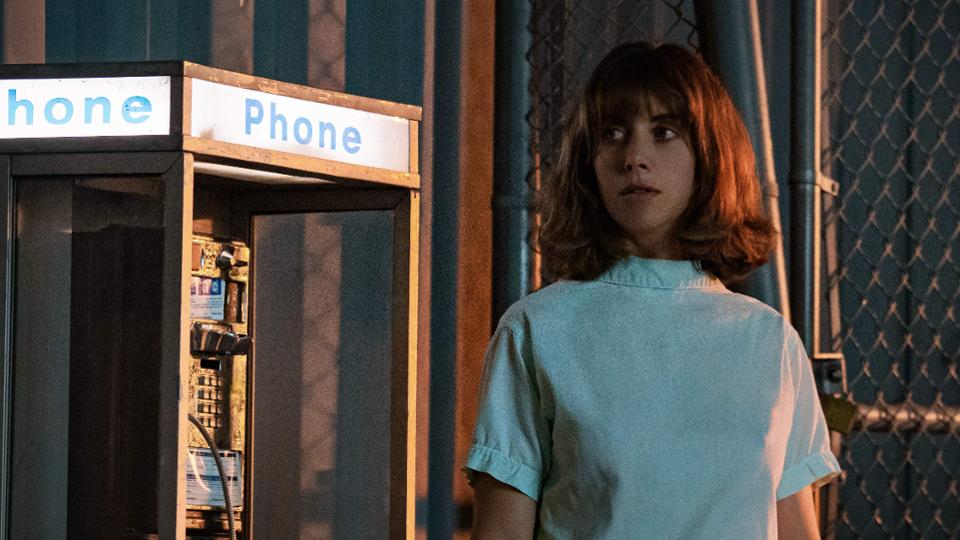
Director Jeff Baena (who also co-wrote along with star Alison Brie) has crafted a very effective fantasy/psychodrama with Horse Girl, and don’t let that fact that it’s billed as a “Netflix Original” turn you off. I mean, let’s face it, the world’s most popular streaming service is pretty inconsistent in the quality control department, but here the stars definitely align. Brie is excellent as the eponymous Horse Girl, actually named Sarah, and her story, while strange and unsettling, is very engaging as it moves from light comedy to something much darker.
As a sympathetic examination of severe mental illness (or is it?), Horse Girl gets very squirmy, and it should, but for SF heads there’s also a definite Philip K Dick influence that grabs hold of you, if you let it. In fact, Sarah’s love of all things equine, spelled out in the film’s very title, is an allusion PKD fans might connect to his best-selling VALIS trilogy which combines similar gnostic visions of alien abduction as religious experience endured by one Horselover Fat, Dick’s alter-personality.
The enigmatic aspects of the film might infuriate some viewers, there’s a lot going on here for the patient amongst us, but Brie’s by turns comical, fragile, frightening and tough performance carries us through any narrative lapses. This genre-jumping mindtrip is confusing and fun, and you can unpack it for days afterwards. So saddle up, this ride is quite an amble.
9. Blood Quantum
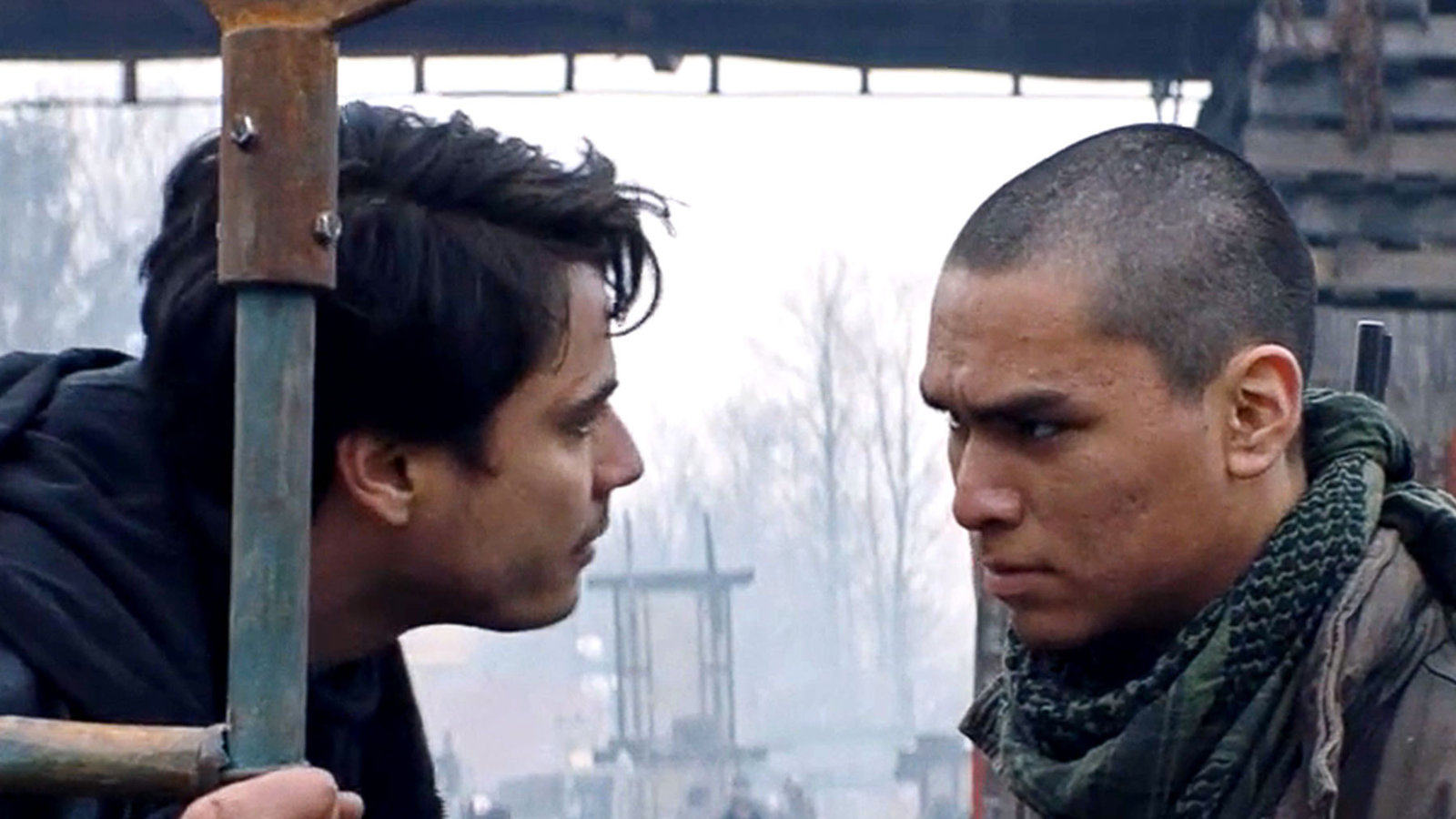
Astute genre fans might remember Indigenous Canadian filmmaker Jeff Barnaby’s startling “Rez-ploitation” directorial debut from 2013, Rhymes for Young Ghouls and wondered what kind of fucked up follow-up he’d cook up to top that doozy (seriously, Ghouls is a great grindhouse homage)? Well, no need to wait any longer as Barnaby has a new viscera-sprayed nightmare for us to endure with his boldly reimagined zombie apocalypse movie, Blood Quantum.
A shrewdly observed sociopolitcal commentary on colonialism and the genocide of Canadian natives, Blood Quantum –– the very title of which is a reference to inherently racist American laws regarding Native identity by percentages of ancestry, just Google that shit and try not to grit your teeth –– is set in Red Crow, an isolated Mi’gMaq reserve where the effects of an undead uprising seem somehow stymied. It seems that the folks at Red Crow are immune to the zombie plague owing to their indigenous heritage.
This fresh take on the zombie craze showcases Barnaby’s signature stylistic flourish and ultra-violent outbreaks. A movie with brains featuring zombies who eat brains? Maybe there’s life in this overdone subgenre yet!
8. Becky
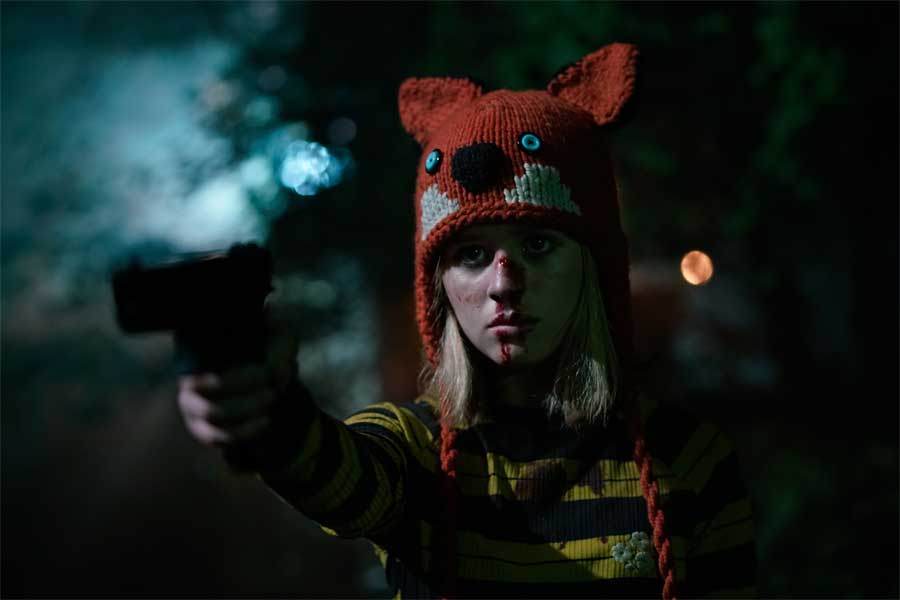
Like the bastard lovechild of Green Room and Degrassi High, directors Jonathan Milott and Cary Murnion have made some seriously exuberant genre fare that will have you pumping your fist for much of its fast moving 98 minutes.
Intense and terribly entertaining, Lulu Wilson is wicked in the titular role as the angsty young rebel who soon runs afoul some extremely cruel escaped convicts led by an effectively against-type Kevin James.
Bonus points for how therapeutic this film is when you get to watch white supremacist dirtbags get their asses handed to them so fucking hard. If Becky gets a sequel we’ll be first in line.
7. Color Out of Space
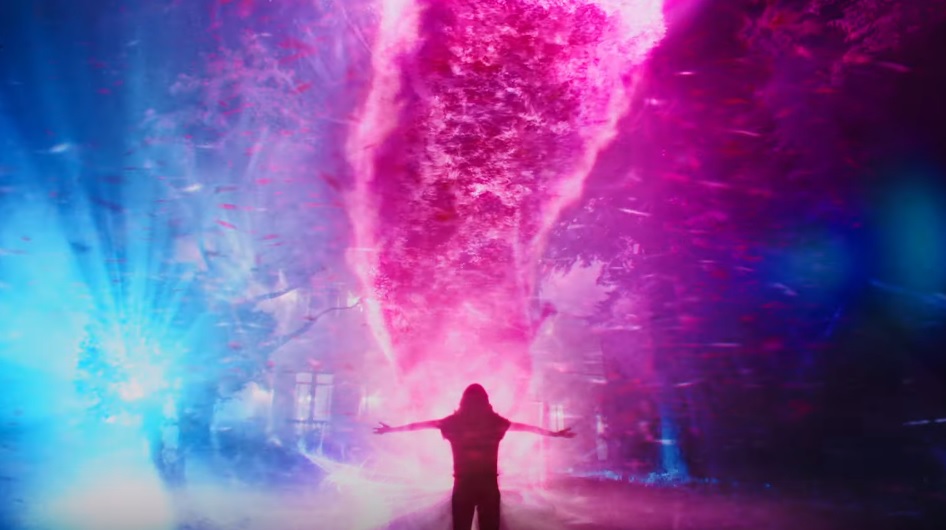
If you want to see Nic Cage go full freak frenzy, Richard Stanley’s Color Out of Space clearly delivers. If you’re coming around the other side of things as an H.P. Lovecraft fan (and I must interject to say that his 1927 short story that inspired this film is the most terrifying thing he ever wrote) you won’t find this to be the most faithful of adaptations. But you will find that Stanley taps the weird fiction vein and cosmic terror nerve better than most who’ve approached Lovecraft’s work, and you probably won’t mind the liberties taken with the material.
Nathan (Cage) and Theresa Gardner (Joely Richardson) are a happily married couple in rural America with three kids and a farm where they raise alpacas and grow juicy tomatoes. Their ridiculously precious domestic bubble is about to burst most brutally when a glowing meteorite lands on their own front lawn. Their bliss blooms to a kaleidoscopic nightmare in no time flat as space madness consumes the family in viciously personalized ways (even the alpacas aren’t spared the cosmic lash), and of course Cage goes Force 10 shitstorm.
It’s nice to see Stanley confidently calling action again after a lengthy absence (his output was famously stymied after the Island of Dr. Moreau fiasco in 1996, with his scant work since then being inconsistent and substandard), but given Cage’s Nic Cage-iness, one wonders if he took much direction at all. His reactions, or rather, his overreactions, never seem to match the matters at hand. But space mania will do that to you so here he gets a solid pass.
6. Swallow
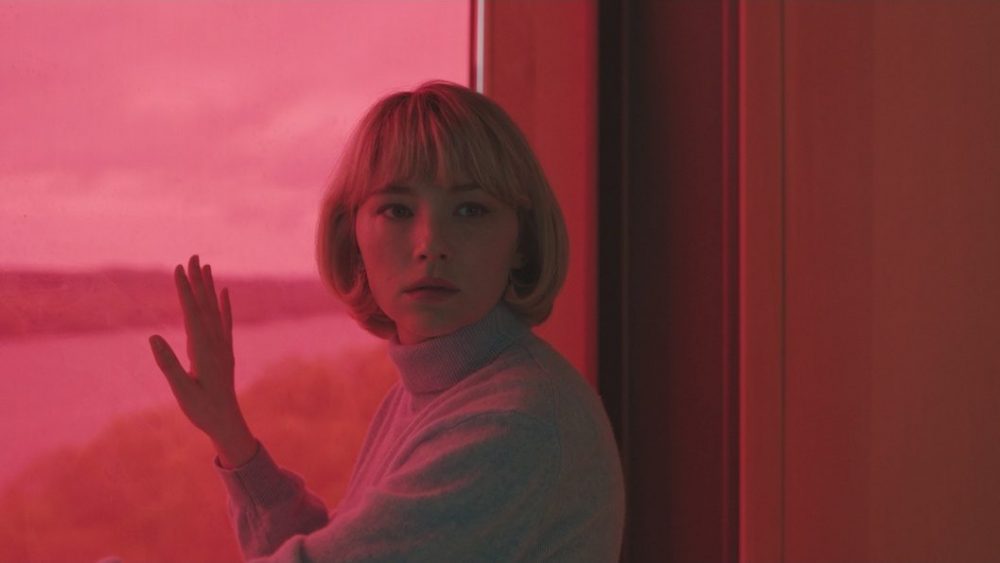
This beautifully shot film from writer-director Carlo Mirabella-Davis and cinematographer Katelin Arizmendi is ostensibly about Hunter Conrad (Haley Bennet) a housewife in distress. Though Swallow is not, as that descriptor might suggest, an iteration of one of those David Lynch mindfucks, nor is it your atypical genre film, some might even argue its placement on a list such as this, but what it is is an incredibly agonizing picture about emotional and mental decline set amidst a wealthy household the reeks of privilege and complacency.
Swallow certainly owes more to Todd Haynes’s Safe than it does to the body-horror hospice of David Cronenberg, but there’s shades of the Baron of Blood here in tiny ways, too. As Hunter descends into her despair and her body and mind seems to turn against her, the film becomes equal parts stylized elegance and upsettingly eerie. This disturbing arthouse psychodrama earns its unease not through gore (though numerous sequences are not for the squeamish) but by the embarrassing urges and uncontrollable drive our heroine has, suffering from pica, to consume so much that she shouldn’t. This is some powerful stuff that could have your anxiety levels at an all-time high, Swallow is also legitimately frightening and bustling with anarchic intensity.
5. Zombi Child
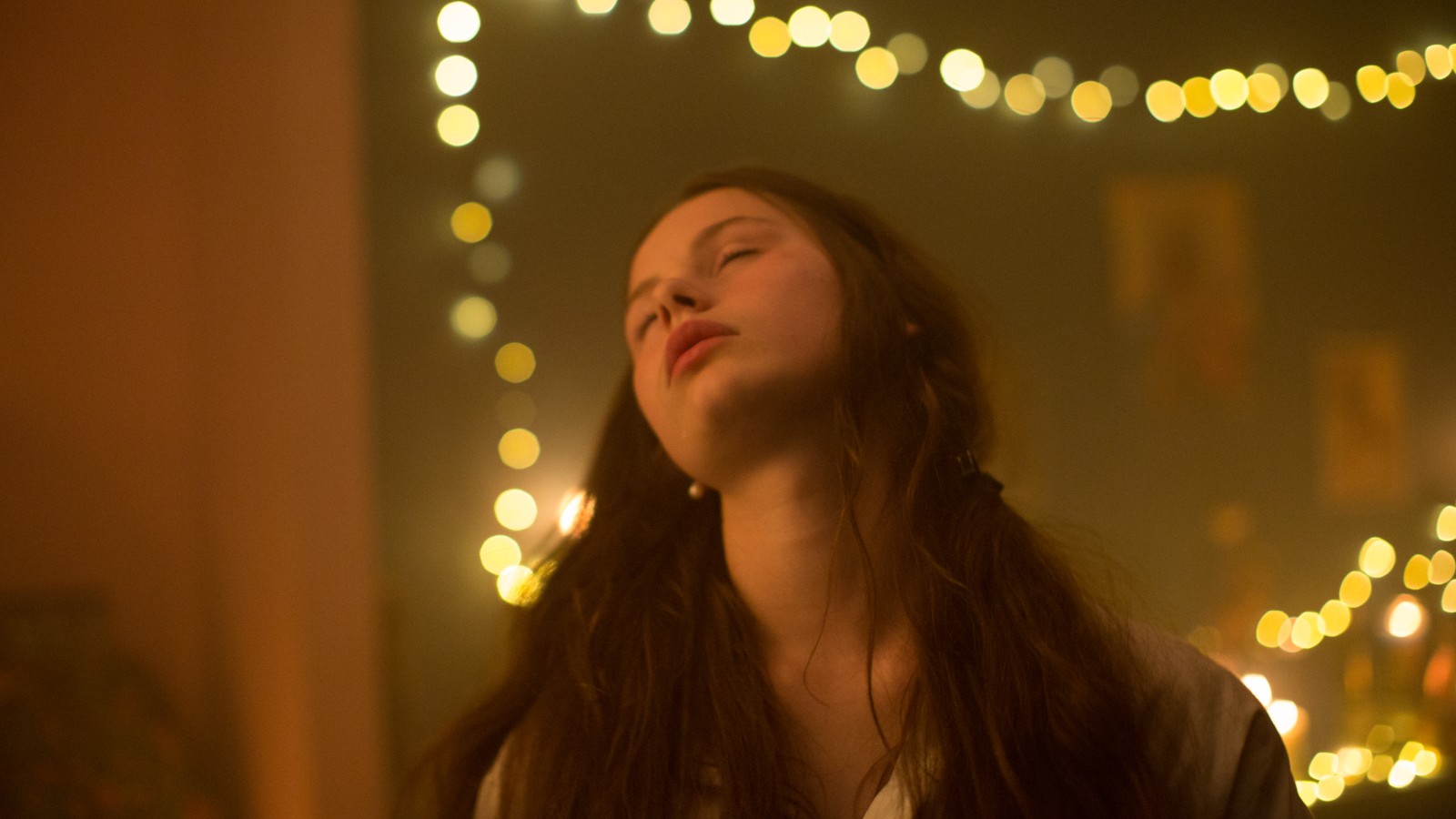
Provocative French filmmaker Bertrand Bonello (Nocturama) resurrects the dead, or rather the undead, for this slow-moving but deeply rewarding exploration of colonialism, slavery, and voodoo mythology, with a little teen angst added for extra zip.
A much more literate horror film than most, Bonello, ever the iconoclast, here channels Jacques Tourner, weaving an intricate, naturalistic tale that also pays tribute to such diverse genre benchmarks as Victor Halperin’s White Zombie and Wes Craven’s The Serpent and the Rainbow.
Bouncing around from Haiti in 1962 to Paris in the present day, Zombi Child’s main thrust is with Melissa (Wislanda Louimat), a Haitian teenager at a prestigious all-girls boarding school who harbors a family secret that her new clique of friends are keen to unriddle.
Carefully combining an outsider perspective of awesome beauty and the corporeal existence of voodoo, Zombi Child not only permeates the present, but the past as well.
4. The Vast of Night
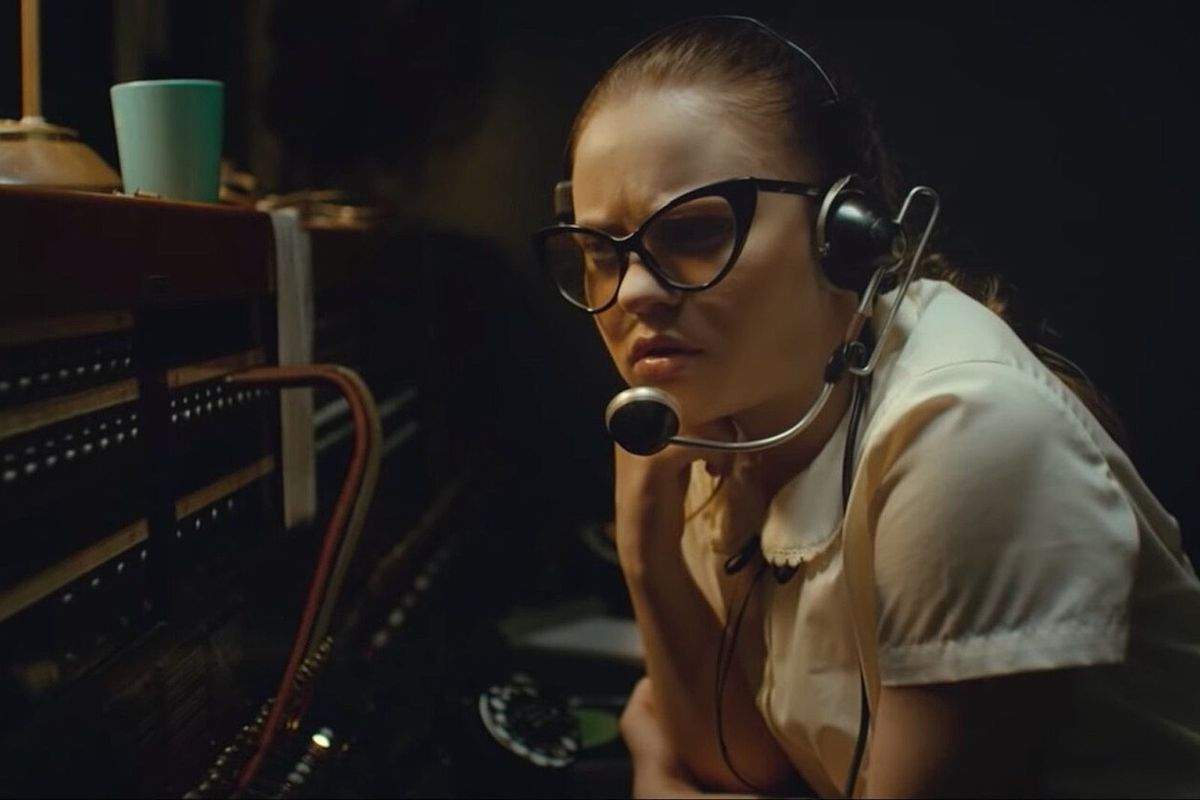
The Vast of Night will be remembered as the astonishing directorial debut of Andrew Patterson, who illustrates again and again what a confident, resourceful, and exciting storyteller he is. Presented as an uncanny and unsettling episode of “Paradox Theater”– a fictional anthology show in the vein of the Outer Limits and the Twilight Zone — The Vast of Night is set in 1950s New Mexico, in the town of Cayuga. Teenybopper Fay (Sierra McCormick) is a switchboard operator who’s overjoyed with her new tape recorder and enjoys cracking wise and chattering endlessly with fellow teen and radio DJ, Everett (Jake Horowitz).
The pair share some suspicions about science and the future and at first it feels like they might embark on a Nancy Drew-like mystery before it becomes more apparent that the pair are more aligned with the likes of Special Agents Mulder and Scully when they intercept a signal that might have extraterrestrial origins.
Patterson’s knack for building intrigue and mounting suspense as we edge closer to revelation is part of what makes the Vast of Night such an audacious and ominous tale. The tease of anticipation is almost more thrilling than the great unveiling. This compelling, technically flashy, and frequently funny sci-fi excitation feels fresh and, as the title suggests, very vast indeed.
3. Gretel and Hansel
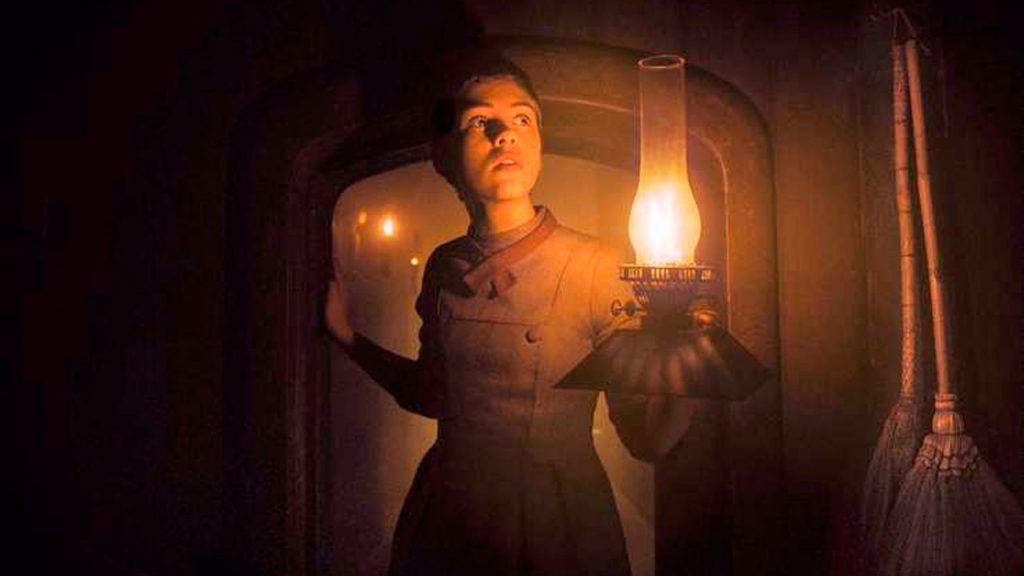
Across two very startling, deeply atmospheric and lyrical horror films, director Oz Perkins (The Blackcoat’s Daughter, I Am the Pretty Thing That Lives in the House) has explored dynamic and disturbing aspects of pain, sorrow, and female agency, and now with what may be his finest yet, he shrewdly revises a classic fairy tale. Gretel and Hansel opens in an arcadian countryside besieged by plague and ruinous superstition.
Sophia Lillis (It, I Am Not Okay With This) is Gretel, who along with her young brother Hansel (Sam Leakey) are forsaken by their mother (Fiona O’Shaughnessy) after refusing to join a convent, and set forth to tame the dark wilderness. Facing starvation the pair stumble upon the sweet-smelling home of a witch (Alice Krige) and here so many more troubles begin.
In Perkins’ capable hands the familiar shadows of Gretel and Hansel transmute into a twisted and thorny tale of feminine force and freedom and the terrible price of both these treasures. Aided by DP Galo Olivares and production designer Jeremy Reed, Perkins inundates the viewer with evil imagery and symbols, creating a creepy climate both strange and chimeric, conjuring a powerful magical spell impossible to break and a visual feast that will more than fill you up.
2. Possessor
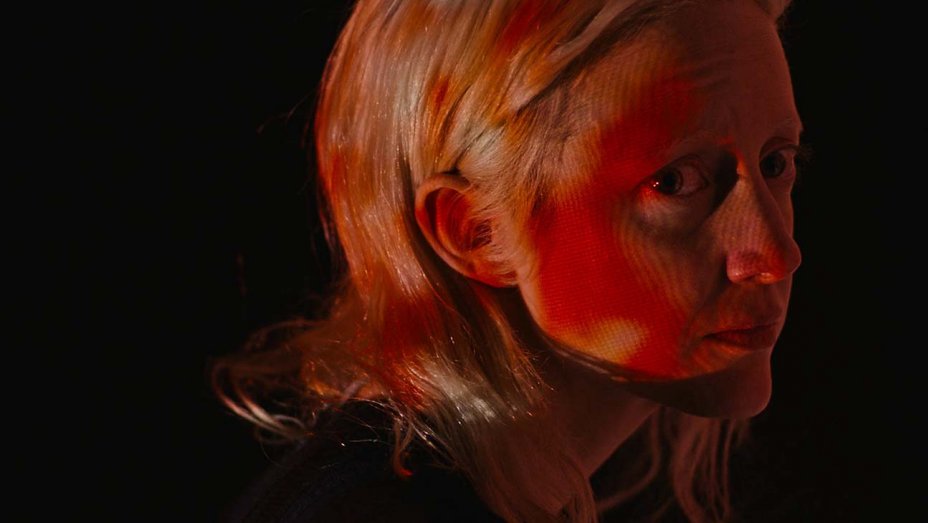
A brilliant and brutal body-horror head trip from Brandon Cronenberg (Antiviral), who’s definitely a chip off the old block (it hardly needs repeating but for the few who don’t know, his dad is David Cronenberg). Possessor takes place in a world that is very familiar but also icy, alienating, and on edge.
Futuristic technologies meld with a worn, vintage esthetic and contract killer Tasya Vos (Andrea Riseborough) is a corporate agent working under Girder (Jennifer Jason Leigh), who uses state-of-the-art brain-implant tech to assassinate her targets. A murderer for hire, Vos inhabits her subject’s bodies, against their will, committing the murders through them, before forcing said subjects to end their own lives in a perfect crime scenario, so to speak.
As the tale lurches forward, leaving many a grisly death in its wake, Vos is seen time and again watching her quarry whom she will soon possess, adopting their mannerisms and speech patterns for her dubious purposes. Does she show signs of struggle? Stings of conscience? Is there a conspiracy set to burst wide open?
Cronenberg directs with a deft precision, fully in control and unafraid of shocking his audience as his dark and deadly tale builds with the momentum of a freight train late at night. Utilizing stylish yet often austere cinematography from Karim Hussain, who also lensed Cronenberg’s previous works, as well as gifted production designer Rupert Lazarus along with a bevvy of suitably brutal practical effects, Possessor is an uneasy but nonetheless awesome experience.
1. Bacurau
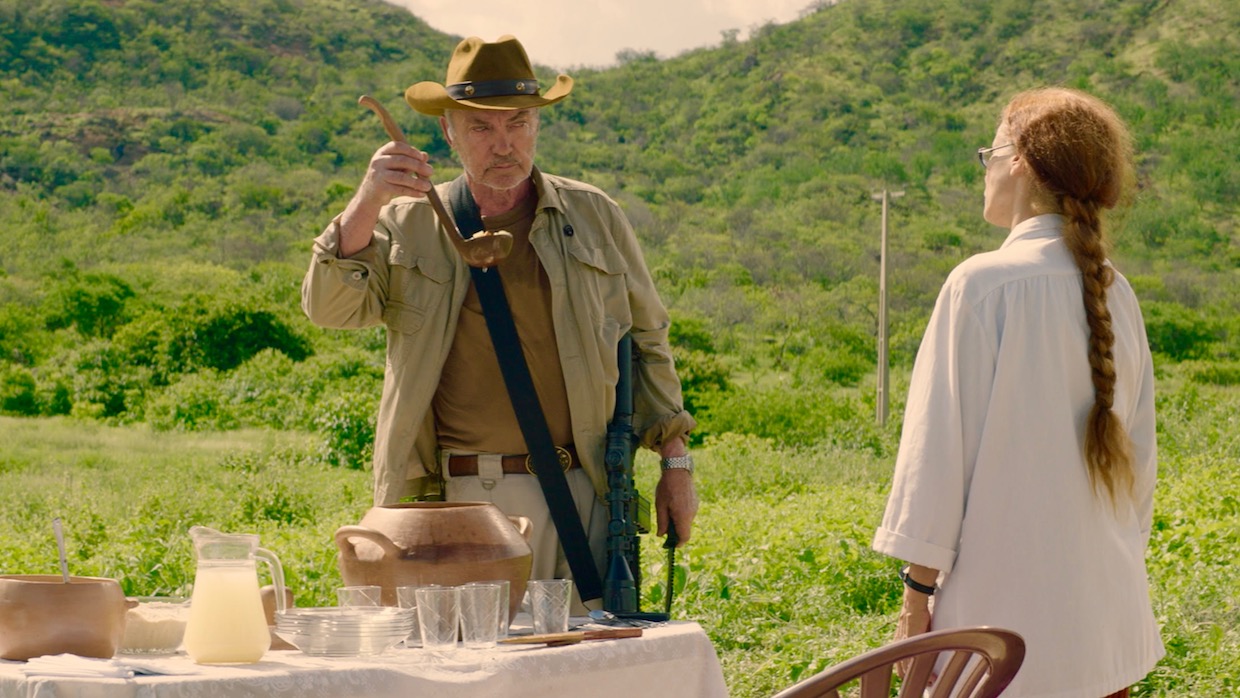
Directed by Kleber Mendonça Filho and Juliano Dornelles (who was Mendonça’s production designer on his two previous films), this genre-bending weird Western has a serious Sergio Leone vibe as it takes on numerous jet-black comic twists, an enormous body count, and a very lackadaisical pace. Set in the eponymous village of Bacurau, a remote place in Brazil’s north east, where the residents find themselves up against aggressive, possibly alien forces as this truly singular The Most Dangerous Game-style iteration unwinds with brio and volcanic splashes of gore.
Starring Sônia Braga and Udo Kier on opposite sides or perhaps each being manipulated by sinister forces, rest assured that all will be revealed to the driving synthesizers of John Carpenter, exposing not only geopolitical gestures, but some truly satisfying and horrific acts of bloody recompense. Whatever this film is (sci-fi western?) it’s a gruesome gem you’ll be raving about and remembering for a long time. Bacurau resonates with brilliance, butchery, and cruel delicacy.
Author Bio: Shane Scott-Travis is a film critic, screenwriter, comic book author/illustrator and cineaste. Currently residing in Vancouver, Canada, Shane can often be found at the cinema, the dog park, or off in a corner someplace, paraphrasing Groucho Marx. Follow Shane on Twitter @ShaneScottravis.